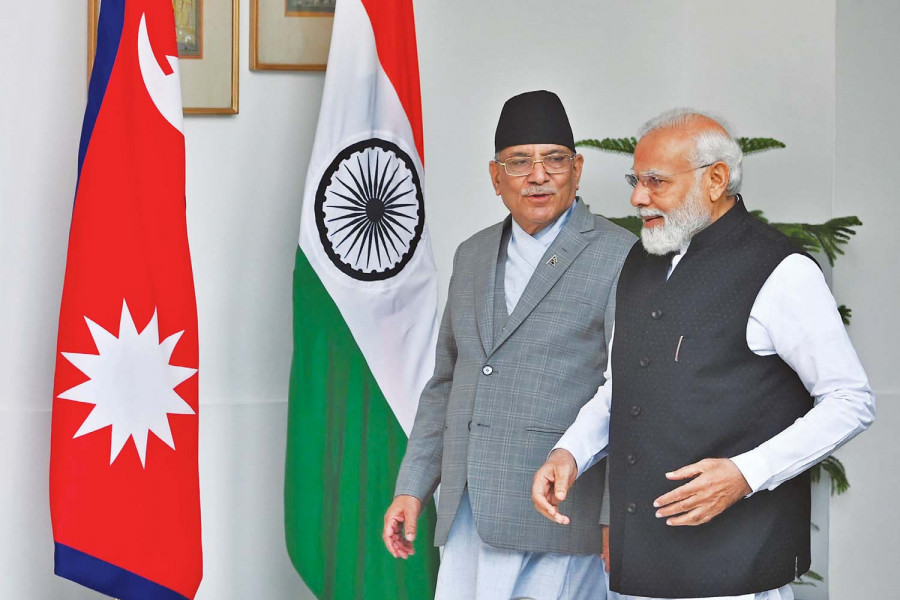Editorial
Beyond the optics
India will struggle to win Nepali hearts unless it is seen as working in Nepal’s interest.
Prime Minister Pushpa Kamal Dahal’s four-day official India visit was a mixed bag. In terms of commitments, Nepal got a lot. Indian Prime Minister Narendra Modi publicly committed to importing 10,000MW of Nepali energy in the next 10 years. Work on the long-pending Pancheshwar Multipurpose Project is to be expedited. Prime Minister Modi even committed to resolving the rather thorny border issues. A host of other agreements to increase connectivity were announced. Moreover, the agreement on power export to Bangladesh via India could ultimately be a game-changer for Nepal’s economy. Even if a fraction of these commitments are realised, Nepal stands to gain immensely. Yet it is also hard to hide the disappointment of a lack of progress on the most important issues for Nepal. The biggest of these concerned getting an additional air entry route for the functionality of the two new international airports in Pokhara and Bhairahawa. Despite the two countries discussing the high-altitude entry route for over a decade, India keeps giving the same excuse that it needs more time to settle what is a ‘technical’ matter.
The other big disappointment was the failure of the Nepali side to even broach the final report of the Eminent Persons Group. Unless the issue gets some kind of a safe-landing, it will keep acting as a niggle in Nepal-India relations. If India had no intention of receiving the final report, why was such an elaborate mechanism involving some of the best minds in the two countries set up, to start with? One curious matter that cropped up during Dahal-Modi discussions was ‘land swap’. The idea is: if there cannot be an agreement on, say, Kalapani, Nepal will cede the area to India in return for a passage to Bangladesh through India’s ‘chicken’s neck’ Siliguri corridor. The Nepali opposition parties have already made much hullabaloo about this in the Parliament. We believe all options to resolve boundary disputes must be openly discussed. As PM Dahal has put it, and rightly so for once, unless Kalapani is first settled, Nepal-India relations will continue to be rocky. Additionally, the transit treaty was renewed and a new deal on a cross-border digital payment system was signed.
So was the prime minister’s India visit a success or a failure? Time will tell. A lot depends on India’s willingness to follow through on its pledges. But more than that, India will find it hard to create a space in Nepali hearts and minds unless it is seen as working in the interest of its smaller neighbour. Giving an additional high-altitude air-route would, for instance, be an unmistakable sign of friendship and goodwill towards Nepal. India must be ready to help Nepal on the latter’s terms rather than expecting Nepalis to appreciate them all. We also hope that Prime Minister Dahal will prove his critics—who argue that the visit was no more than an exercise to get New Delhi’s blessings for his premiership—wrong. The basis to judge this will be his ability one, to hold India accountable on the agreements and understandings made during the visit and two, to dexterously use Nepal’s diplomatic channels to keep pressing the southern neighbour on a final settlement of vital matters like the EPG, the air-entry route and seamless third-country trade and travel rights.




 8.54°C Kathmandu
8.54°C Kathmandu














